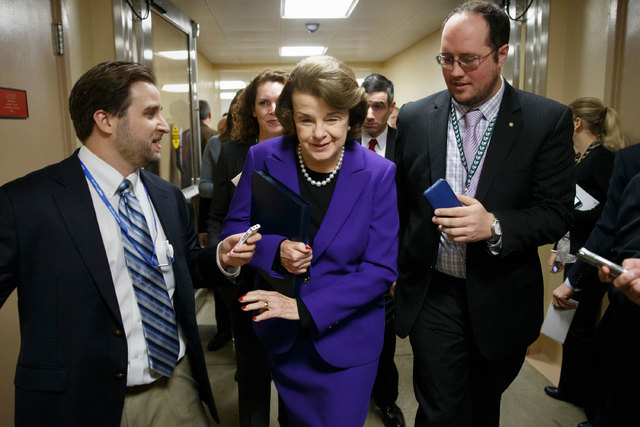Long past time to fire the torture judge

Almost always, a national story has a Las Vegas connection.
And the Senate Intelligence Committee’s Tuesday release of about 500 pages of its 6,000-page inquiry into the torture of detainees in the war on terror is no different. In fact, one of the key actors — a person without whom the gruesome techniques described in the report may not have happened at all — is from right here in Sin City.
Meet Jay S. Bybee, currently a judge of the 9th U.S. Circuit Court of Appeals. Back in 2001, Bybee was an appointee of the George W. Bush administration to an obscure but critical job heading up the Justice Department’s Office of Legal Counsel.
It was in that post in 2002 that Bybee signed off on memos that authorized agents of the U.S. government to engage in torture, in part by re-defining the term. According to the memos — drafted by then-Office of Legal Counsel attorney John Yoo — “torture” means severe pain that rises to the level of a serious physical injury “…such as death, organ failure, or serious impairment of body functions.”
And “a defendant must specifically intend to cause prolonged mental harm for the defendant to have committed torture,” according to the memo. “Thus, if a defendant had a good faith belief that his actions will not result in prolonged mental harm, he lacks the mental state necessary for his actions to constitute torture.”
Waterboarding? No problem. Sleep deprivation? OK. Stress positions? Go for it. And if you go too far? “In that case, we believe that [a person accused of torture] could argue that his actions were justified by the executive branch’s constitutional authority to protect the nation from attack.”
In these documents lay the seeds of America’s torture program.
The memos were swiftly withdrawn by Bybee’s successor in the office, Jack Goldsmith, who left shortly thereafter. Other memos written by the office, however, seemed to endorse the Bybee-Yoo memos, until President Obama by executive order repudiated all of them shortly after taking office in early 2009.
Bybee was nominated for the 9th Circuit before his role in the torture memos was known. Senate Judiciary Committee Chairman Patrick Leahy, D-Vt., told The Washington Post in 2009 that Bybee would not have been confirmed had the memos been public, adding “… the decent and honorable thing for him to do would be to resign.”
Bybee hasn’t resigned, although that Post story quoted “a fellow legal scholar” saying Bybee expressed regret for the contents of the memo. Another quoted him defending the legal reasoning in the document, but decrying how prisoners were actually treated.
The Senate’s report may give him more reasons for regret. According to the Salt Lake Tribune, the CIA misled Bybee when it asked for the Office of Legal Counsel’s opinion on prohibited conduct, telling him a suspected al-Qaida detainee was withholding information. It turns out, the person wasn’t withholding information, and was later found not even to be in al-Qaida.
It must be said that Bybee and Yoo were working under incredible pressure, in an environment where the nation feared further terror attacks. The George W. Bush administration pressed hard for additional authority for its interrogations, and Bybee no doubt felt the need to do his part in the war on terror.
But he was wrong, legally and morally. And while he can’t (and shouldn’t) be impeached for memos he wrote before his confirmation to the bench, there is one small thing we can (and should) do to bring a tiny measure of justice to his case.
Bybee remains a senior fellow in constitutional law at UNLV’s Boyd Law School. He’s held the position for years.
He should lose it.
While it understandably confers a bit of prestige upon Boyd to have a 9th Circuit judge as a senior fellow on its faculty, Bybee’s scholarship and role in the torture program can’t be ignored. He’s one of the last people who should be teaching would-be lawyers about the Constitution. (That goes for Yoo, too, who continues to teach at UC Berkeley’s law school.)
I’ve had the privilege of interviewing and working with many people at Boyd, from professors to deans to non-lawyers. To a person, I’ve found them to be smart professionals committed to fairness, justice, good scholarship and due process of law. That’s the precise opposite of what we saw in the torture memos.
Instead of being the law school known for having the so-called torture judge on its faculty, Boyd should become known as the law school that kicked the so-called torture judge off its faculty. It’s long past time.
Steve Sebelius is a Las Vegas Review-Journal political columnist who blogs at SlashPolitics.com. Follow him on Twitter (@SteveSebelius) or reach him at 702-387-5276 or ssebelius@reviewjournal.com.